President Obama has begun a debate on the issue of terrorism and Islam asking Americans to recognize that just because the terrorists claim they represent Islam doesn’t make it so. Why give the terrorists what they want? Defeat terrorism by being educated and understanding the facts, as complex as they may be. We are a smart country. Let’s act smart.
By Ray Hanania
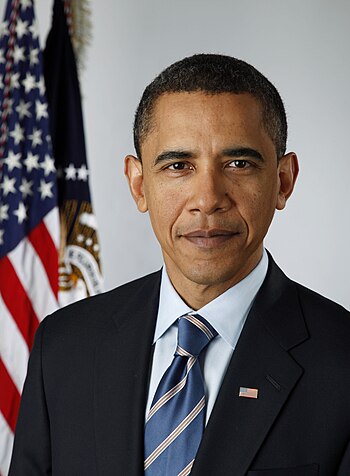
Americans are not the most educated people in the world but they are smart. It’s just that their emotions and angers often trump their reason and rationalism, especially when dealing with Islam.
So when President Barak Obama begins a national debate by clearly stating that we should surrender to the terrorists by describing them as “Muslims,” as they demand, but rather recognize that the terrorists do nor represent Islam or Muslims and never have.
Of course, that is a complicated message that requires thought, education, understanding and comprehension of the challenges America faces. It runs counter to the way many Americans think, which is simplistically and depending far too often on stereotypes, racism and even hatred.
Americans are angry with the terrorists, many of whom originate in countries where Islam is the dominant religion.
But it is the terrorists who claim they are Muslim and who represent Islam. It is the terrorists who claim that their violence is intended to “free” Muslims and destroy the West. It is the terrorists who assert that they are the face of Islam.
So why should we simply surrender to their demands now? Why should be give the terrorists what they want, to be recognized by us as being the representatives of Islam.
The fact is that while these fanatics of ISIS and ISIL have killed many Christians and Jews, they are killing far more Muslims.
ISIS or ISIL stands for the Islamic State in Iraq and Syria, or the Islamic State in Iraq and the Levant. But that, too, is the name given by the terrorists. Why should we call them ISIS or ISIL? Instead, Arabs are calling them Daesh, the true acronym of their name but also a play on words which means “that which is under your foot, to be crushed.”
Al-Qaeda, Daesh and all of them are terrorists first and foremost. They are not representatives of Muslims or Islam or even of Arabs — most Arabs are Muslim but many Arabs, about 18 percent are Christian, although the Christian population in the Middle East where Christianity was founded is slowly and steadily disappearing.
Americans don’t want to be bothered with facts like this. The rush to judgment and hate is satiating. It provides a moment of satisfaction in the face of terrorist brutality. It’s easier for Americans not to bother with the complicated facts and to instead embrace the stereotypes.
That’s what a stereotype is, a simplistic answer to a complicated problem. Racism is the embodiment of stereotyping.
============================================
“Americans are the most educated people in the world,
but the least educated about the world”
— Ray Hanania, author, writer, peace activist
============================================
President Obama should be applauded for believing that Americans really are much smarter than they even give themselves credit for and they are capable of understanding the complexities of the threats that we face as Americans. We need to recognize the facts. We need to understand the truth of our foreign policies. We need to understand who the enemy really is if we plan to defeat them.
The Obama message is so powerful and can turn the tide to begin the process of defeating al-Qaeda, Daesh (ISIS, ISIL) and all the other terrorists who claim to be Muslim or claim to be whatever.
The terrorists are all criminals. They have no justification for what they do. Their efforts to wrap themselves up in the injustices of the Middle East is a crime, not a definition of who they are. We should take the injustices they grab away from them and understand them and correct them, not because we are soft on terrorism, but because we are a principled, moral and just society. We believe in truth and justice and it’s time that we Americans recommit ourselves to those principles.
===================
[jetpack_subscription_form]
===================
Here are President Obama’s full comments made
Remarks by the President in Closing of the Summit on Countering Violent Extremism
South Court Auditorium
4:20 P.M. EST
THE PRESIDENT: Thank you. (Applause.) Thank you so much. Everybody, please have a seat.
Well, thank you, Lisa, for the introduction. Lisa is an example of the countless dedicated public servants across our government, a number of who are here today, who are working tirelessly every single day on behalf of the security and safety of the American people. So we very much appreciate her. And thanks to all of you for your attendance and participation in this important summit.
For more than 238 years, the United States of America has not just endured, but we have thrived and surmounted challenges that might have broken a lesser nation. After a terrible civil war, we repaired our union. We weathered a Great Depression, became the world’s most dynamic economy. We fought fascism, liberated Europe. We faced down communism — and won. American communities have been destroyed by earthquakes and tornadoes and fires and floods — and each time we rebuild.
The bombing that killed 168 people could not break Oklahoma City. On 9/11, terrorists tried to bring us to our knees; today a new tower soars above New York City, and America continues to lead throughout the world. After Americans were killed at Fort Hood and the Boston Marathon, it didn’t divide us; we came together as one American family.
In the face of horrific acts of violence — at a Sikh temple near Milwaukee, or at a Jewish community center outside Kansas City — we reaffirmed our commitment to pluralism and to freedom, repulsed by the notion that anyone should ever be targeted because of who they are, or what they look like, or how they worship.
Most recently, with the brutal murders in Chapel Hill of three young Muslim Americans, many Muslim Americans are worried and afraid. And I want to be as clear as I can be: As Americans, all faiths and backgrounds, we stand with you in your grief and we offer our love and we offer our support.
My point is this: As Americans, we are strong and we are resilient. And when tragedy strikes, when we take a hit, we pull together, and we draw on what’s best in our character — our optimism, our commitment to each other, our commitment to our values, our respect for one another. We stand up, and we rebuild, and we recover, and we emerge stronger than before. That’s who we are. (Applause.)
And I say all this because we face genuine challenges to our security today, just as we have throughout our history. Challenges to our security are not new. They didn’t happen yesterday or a week ago or a year ago. We’ve always faced challenges. One of those challenges is the terrorist threat from groups like al Qaeda and ISIL. But this isn’t our challenge alone. It’s a challenge for the world. ISIL is terrorizing the people of Syria and Iraq, beheads and burns human beings in unfathomable acts of cruelty. We’ve seen deadly attacks in Ottawa and Sydney and, Paris, and now Copenhagen.
So, in the face of this challenge, we have marshalled the full force of the United States government, and we’re working with allies and partners to dismantle terrorist organizations and protect the American people. Given the complexities of the challenge and the nature of the enemy — which is not a traditional army — this work takes time, and will require vigilance and resilience and perspective. But I’m confident that, just as we have for more than two centuries, we will ultimately prevail.
And part of what gives me that confidence is the overwhelming response of the world community to the savagery of these terrorists — not just revulsion, but a concrete commitment to work together to vanquish these organizations.
At the United Nations in September, I called on the international community to come together and eradicate this scourge of violent extremism. And I want to thank all of you — from across America and around the world — for answering this call. Tomorrow at the State Department, governments and civil society groups from more than 60 countries will focus on the steps that we can take as governments. And I’ll also speak about how our nations have to remain relentless in our fight — our counterterrorism efforts — against groups that are plotting against our counties.
But we are here today because of a very specific challenge — and that’s countering violent extremism, something that is not just a matter of military affairs. By “violent extremism,” we don’t just mean the terrorists who are killing innocent people. We also mean the ideologies, the infrastructure of extremists –the propagandists, the recruiters, the funders who radicalize and recruit or incite people to violence. We all know there is no one profile of a violent extremist or terrorist, so there’s no way to predict who will become radicalized. Around the world, and here in the United States, inexcusable acts of violence have been committed against people of different faiths, by people of different faiths — which is, of course, a betrayal of all our faiths. It’s not unique to one group, or to one geography, or one period of time.
But we are here at this summit because of the urgent threat from groups like al Qaeda and ISIL. And this week we are focused on prevention — preventing these groups from radicalizing, recruiting or inspiring others to violence in the first place. I’ve called upon governments to come to the United Nations this fall with concrete steps that we can take together. And today, what I want to do is suggest several areas where I believe we can concentrate our efforts.
First, we have to confront squarely and honestly the twisted ideologies that these terrorist groups use to incite people to violence. Leading up to this summit, there’s been a fair amount of debate in the press and among pundits about the words we use to describe and frame this challenge. So I want to be very clear about how I see it.
Al Qaeda and ISIL and groups like it are desperate for legitimacy. They try to portray themselves as religious leaders — holy warriors in defense of Islam. That’s why ISIL presumes to declare itself the “Islamic State.” And they propagate the notion that America — and the West, generally — is at war with Islam. That’s how they recruit. That’s how they try to radicalize young people. We must never accept the premise that they put forward, because it is a lie. Nor should we grant these terrorists the religious legitimacy that they seek. They are not religious leaders — they’re terrorists. (Applause.) And we are not at war with Islam. We are at war with people who have perverted Islam. (Applause.)
Now, just as those of us outside Muslim communities need to reject the terrorist narrative that the West and Islam are in conflict, or modern life and Islam are in conflict, I also believe that Muslim communities have a responsibility as well. Al Qaeda and ISIL do draw, selectively, from the Islamic texts. They do depend upon the misperception around the world that they speak in some fashion for people of the Muslim faith, that Islam is somehow inherently violent, that there is some sort of clash of civilizations.
Of course, the terrorists do not speak for over a billion Muslims who reject their hateful ideology. They no more represent Islam than any madman who kills innocents in the name of God represents Christianity or Judaism or Buddhism or Hinduism. No religion is responsible for terrorism. People are responsible for violence and terrorism. (Applause.)
And to their credit, there are respected Muslim clerics and scholars not just here in the United States but around the world who push back on this twisted interpretation of their faith. They want to make very clear what Islam stands for. And we’re joined by some of these leaders today. These religious leaders and scholars preach that Islam calls for peace and for justice, and tolerance toward others; that terrorism is prohibited; that the Koran says whoever kills an innocent, it is as if he has killed all mankind. Those are the voices that represent over a billion people around the world.
But if we are going to effectively isolate terrorists, if we’re going to address the challenge of their efforts to recruit our young people, if we’re going to lift up the voices of tolerance and pluralism within the Muslim community, then we’ve got to acknowledge that their job is made harder by a broader narrative that does exist in many Muslim communities around the world that suggests the West is at odds with Islam in some fashion.
The reality — which, again, many Muslim leaders have spoken to — is that there’s a strain of thought that doesn’t embrace ISIL’s tactics, doesn’t embrace violence, but does buy into the notion that the Muslim world has suffered historical grievances — sometimes that’s accurate — does buy into the belief that so many of the ills in the Middle East flow from a history of colonialism or conspiracy; does buy into the idea that Islam is incompatible with modernity or tolerance, or that it’s been polluted by Western values.
So those beliefs exist. In some communities around the world they are widespread. And so it makes individuals — especially young people who already may be disaffected or alienated — more ripe for radicalization. And so we’ve got to be able to talk honestly about those issues. We’ve got to be much more clear about how we’re rejecting certain ideas.
So just as leaders like myself reject the notion that terrorists like ISIL genuinely represent Islam, Muslim leaders need to do more to discredit the notion that our nations are determined to suppress Islam, that there’s an inherent clash in civilizations. Everybody has to speak up very clearly that no matter what the grievance, violence against innocents doesn’t defend Islam or Muslims, it damages Islam and Muslims. (Applause.)
And when all of us, together, are doing our part to reject the narratives of violent extremists, when all of us are doing our part to be very clear about the fact that there are certain universal precepts and values that need to be respected in this interconnected world, that’s the beginnings of a partnership.
As we go forward, we need to find new ways to amplify the voices of peace and tolerance and inclusion — and we especially need to do it online. We also need to lift up the voices of those who know the hypocrisy of groups like ISIL firsthand, including former extremists. Their words speak to us today. And I know in some of the discussions these voices have been raised: “I witnessed horrible crimes committed by ISIS.” “It’s not a revolution or jihad…it’s a slaughter…I was shocked by what I did.” “This isn’t what we came for, to kill other Muslims.” “I’m 28 — is this the only future I’m able to imagine?” That’s the voice of so many who were temporarily radicalized and then saw the truth. And they’ve warned other young people not to make the same mistakes as they did. “Do not run after illusions.” “Do not be deceived.” “Do not give up your life for nothing.” We need to lift up those voices.
And in all this work, the greatest resource are communities themselves, especially like those young people who are here today. We are joined by talented young men and women who are pioneering new innovations, and new social media tools, and new ways to reach young people. We’re joined by leaders from the private sector, including high-tech companies, who want to support your efforts. And I want to challenge all of us to build new partnerships that unleash the talents and creativity of young people — young Muslims — not just to expose the lies of extremists but to empower youth to service, and to lift up people’s lives here in America and around the world. And that can be a calling for your generation.
So that’s the first challenge — we’ve got to discredit these ideologies. We have to tackle them head on. And we can’t shy away from these discussions. And too often, folks are, understandably, sensitive about addressing some of these root issues, but we have to talk about them, honestly and clearly. (Applause.) And the reason I believe we have to do so is because I’m so confident that when the truth is out we’ll be successful. Now, a second challenge is we do have to address the grievances that terrorists exploit, including economic grievances. Poverty alone does not cause a person to become a terrorist, any more than poverty alone causes somebody to become a criminal. There are millions of people — billions of people — in the world who live in abject poverty and are focused on what they can do to build up their own lives, and never embrace violent ideologies.
Conversely, there are terrorists who’ve come from extraordinarily wealthy backgrounds, like Osama bin Laden. What’s true, though, is that when millions of people — especially youth — are impoverished and have no hope for the future, when corruption inflicts daily humiliations on people, when there are no outlets by which people can express their concerns, resentments fester. The risk of instability and extremism grow. Where young people have no education, they are more vulnerable to conspiracy theories and radical ideas, because it’s not tested against anything else, they’ve got nothing to weigh. And we’ve seen this across the Middle East and North Africa.
And terrorist groups are all too happy to step into a void. They offer salaries to their foot soldiers so they can support their families. Sometimes they offer social services — schools, health clinics — to do what local governments cannot or will not do. They try to justify their violence in the name of fighting the injustice of corruption that steals from the people — even while those terrorist groups end up committing even worse abuses, like kidnapping and human trafficking.
So if we’re going to prevent people from being susceptible to the false promises of extremism, then the international community has to offer something better. And the United States intends to do its part. We will keep promoting development and growth that is broadly shared, so more people can provide for their families. We’ll keep leading a global effort against corruption, because the culture of the bribe has to be replaced by good governance that doesn’t favor certain groups over others.
Countries have to truly invest in the education and skills and job training that our extraordinary young people need. And by the way, that’s boys and girls, and men and women, because countries will not be truly successful if half their populations — if their girls and their women are denied opportunity. (Applause.) And America will continue to forge new partnerships in entrepreneurship and innovation, and science and technology, so young people from Morocco to Malaysia can start new businesses and create more prosperity.
Just as we address economic grievances, we need to face a third challenge — and that’s addressing the political grievances that are exploited by terrorists. When governments oppress their people, deny human rights, stifle dissent, or marginalize ethnic and religious groups, or favor certain religious groups over others, it sows the seeds of extremism and violence. It makes those communities more vulnerable to recruitment. Terrorist groups claim that change can only come through violence. And if peaceful change is impossible, that plays into extremist propaganda.
So the essential ingredient to real and lasting stability and progress is not less democracy; it’s more democracy. (Applause.) It’s institutions that uphold the rule of law and apply justice equally. It’s security forces and police that respect human rights and treat people with dignity. It’s free speech and strong civil societies where people can organize and assemble and advocate for peaceful change. It’s freedom of religion where all people can practice their faith without fear and intimidation. (Applause.) All of this is part of countering violent extremism.
Fourth, we have to recognize that our best partners in all these efforts, the best people to help protect individuals from falling victim to extremist ideologies are their own communities, their own family members. We have to be honest with ourselves. Terrorist groups like al Qaeda and ISIL deliberately target their propaganda in the hopes of reaching and brainwashing young Muslims, especially those who may be disillusioned or wrestling with their identity. That’s the truth. The high-quality videos, the online magazines, the use of social media, terrorist Twitter accounts — it’s all designed to target today’s young people online, in cyberspace.
And by the way, the older people here, as wise and respected as you may be, your stuff is often boring — (laughter) — compared to what they’re doing. (Applause.) You’re not connected. And as a consequence, you are not connecting.
So these terrorists are a threat, first and foremost, to the communities that they target, which means communities have to take the lead in protecting themselves. And that is true here in America, as it’s true anywhere else. When someone starts getting radicalized, family and friends are often the first to see that something has changed in their personality. Teachers may notice a student becoming withdrawn or struggling with his or her identity, and if they intervene at that moment and offer support, that may make a difference.
Faith leaders may notice that someone is beginning to espouse violent interpretations of religion, and that’s a moment for possible intervention that allows them to think about their actions and reflect on the meaning of their faith in a way that’s more consistent with peace and justice. Families and friends, coworkers, neighbors, faith leaders — they want to reach out; they want to help save their loved ones and friends, and prevent them from taking a wrong turn.
But communities don’t always know the signs to look for, or have the tools to intervene, or know what works best. And that’s where government can play a role — if government is serving as a trusted partner. And that’s where we also need to be honest. I know some Muslim Americans have concerns about working with government, particularly law enforcement. And their reluctance is rooted in the objection to certain practices where Muslim Americans feel they’ve been unfairly targeted.
So, in our work, we have to make sure that abuses stop, are not repeated, that we do not stigmatize entire communities. Nobody should be profiled or put under a cloud of suspicion simply because of their faith. (Applause.) Engagement with communities can’t be a cover for surveillance. We can’t “securitize” our relationship with Muslim Americans — (applause) — dealing with them solely through the prism of law enforcement. Because when we do, that only reinforces suspicions, makes it harder for us to build the trust that we need to work together.
As part of this summit, we’re announcing that we’re going to increase our outreach to communities, including Muslim Americans. We’re going to step up our efforts to engage with partners and raise awareness so more communities understand how to protect their loved ones from becoming radicalized. We’ve got to devote more resources to these efforts. (Applause.)
And as government does more, communities are going to have to step up as well. We need to build on the pilot programs that have been discussed at this summit already — in Los Angeles, in Minneapolis, in Boston. These are partnerships that bring people together in a spirit of mutual respect and create more dialogue and more trust and more cooperation. If we’re going to solve these issues, then the people who are most targeted and potentially most affected — Muslim Americans — have to have a seat at the table where they can help shape and strengthen these partnerships so that we’re all working together to help communities stay safe and strong and resilient. (Applause.)
And finally, we need to do what extremists and terrorists hope we will not do, and that is stay true to the values that define us as free and diverse societies. If extremists are peddling the notion that Western countries are hostile to Muslims, then we need to show that we welcome people of all faiths.
Here in America, Islam has been woven into the fabric of our country since its founding. (Applause.) Generations of Muslim immigrants came here and went to work as farmers and merchants and factory workers, helped to lay railroads and build up America. The first Islamic center in New York City was founded in the 1890s. America’s first mosque — this was an interesting fact — was in North Dakota. (Laughter.)
Muslim Americans protect our communities as police officers and firefighters and first responders, and protect our nation by serving in uniform, and in our intelligence communities, and in homeland security. And in cemeteries across our country, including at Arlington, Muslim American heroes rest in peace having given their lives in defense of all of us. (Applause.)
And of course that’s the story extremists and terrorists don’t want the world to know — Muslims succeeding and thriving in America. Because when that truth is known, it exposes their propaganda as the lie that it is. It’s also a story that every American must never forget, because it reminds us all that hatred and bigotry and prejudice have no place in our country. It’s not just counterproductive; it doesn’t just aid terrorists; it’s wrong. It’s contrary to who we are.
I’m thinking of a little girl named Sabrina who last month sent me a Valentine’s Day card in the shape of a heart. It was the first Valentine I got. (Laughter.) I got it from Sabrina before Malia and Sasha and Michelle gave me one. (Laughter.) So she’s 11 years old. She’s in the 5th grade. She’s a young Muslim American. And she said in her Valentine, “I enjoy being an American.” And when she grows up, she wants to be an engineer — or a basketball player. (Laughter.) Which are good choices. (Laughter.) But she wrote, “I am worried about people hating Muslims…If some Muslims do bad things, that doesn’t mean all of them do.” And she asked, “Please tell everyone that we are good people and we’re just like everyone else.” (Applause.) Now, those are the words — and the wisdom — of a little girl growing up here in America, just like my daughters are growing up here in America. “We’re just like everybody else.” And everybody needs to remember that during the course of this debate.
As we move forward with these challenges, we all have responsibilities, we all have hard work ahead of us on this issue. We can’t paper over problems, and we’re not going to solve this if we’re always just trying to be politically correct. But we do have to remember that 11-year-old girl. That’s our hope. That’s our future. That’s how we discredit violent ideologies, by making sure her voice is lifted up; making sure she’s nurtured; making sure that she’s supported — and then, recognizing there are little girls and boys like that all around the world, and us helping to address economic and political grievances that can be exploited by extremists, and empowering local communities, and us staying true to our values as a diverse and tolerant society even when we’re threatened — especially when we’re threatened.
There will be a military component to this. There are savage cruelties going on out there that have to be stopped. ISIL is killing Muslims at a rate that is many multiples the rate that they’re killing non-Muslims. Everybody has a stake in stopping them, and there will be an element of us just stopping them in their tracks with force. But to eliminate the soil out of which they grew, to make sure that we are giving a brighter future to everyone and a lasting sense of security, then we’re going to have to make it clear to all of our children — including that little girl in 5th grade — that you have a place. You have a place here in America. You have a place in those countries where you live. You have a future.
Ultimately, those are the antidotes to violent extremism. And that’s work that we’re going to have to do together. It will take time. This is a generational challenge. But after 238 years, it should be obvious — America has overcome much bigger challenges, and we’ll overcome the ones that we face today. We will stay united and committed to the ideals that have shaped us for more than two centuries, including the opportunity and justice and dignity of every single human being.
Thank you very much, everybody. (Applause.)


- Israelisnipers shooting and killing hospital workers in Gaza - December 11, 2023
- CAIR Condemns Israeli Executions of Wounded, Unarmed Palestinian in West Bank - December 11, 2023
- Arab and Muslim American voters face a “simple choice” between Biden’s inhumanity and Trump’s edgy politics - December 9, 2023















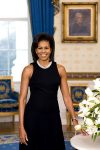
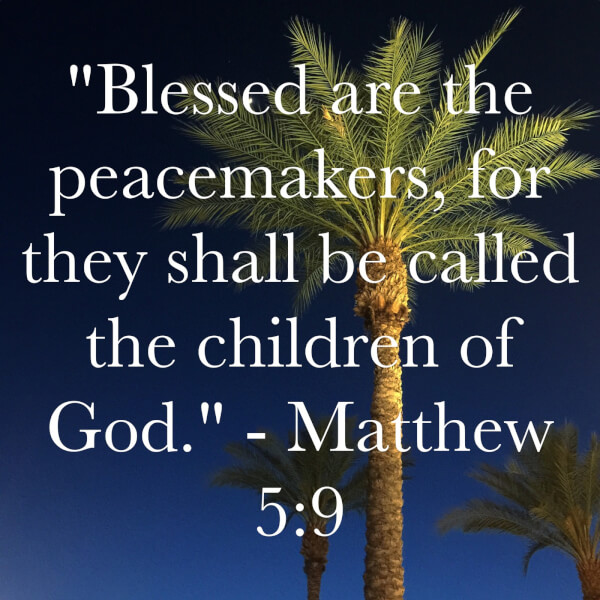


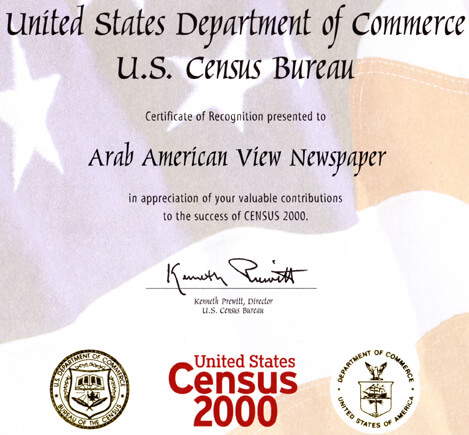
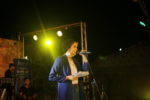

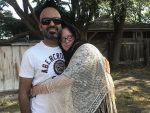
Leave any primitive superstitions behind, there is no need for them and all they do is divide people. rather than being bound to some barbaric religion take in the cosmos as they are and rely on your rational thought, not some imaginary friend in the sky.